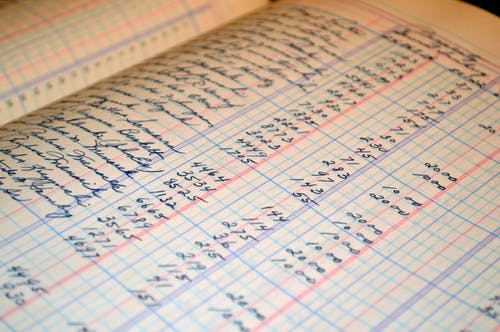Why forgiveness should be on top of your list of duas

Your record will be presented to Allah so ensure you are happy with it
One of the verses mentions how you will be presented to Allah Almighty on the Day of Judgement and you will not be able to hide anything. Your ins will be out. Your deeds, your records, your heart, you intentions – the good and the bad – will all be laid bare. Exposed.
On that day you shall be exposed to view– no secret of yours shall remain hidden. (69:18)
In dunya you can hide this from your friends and colleagues. In the akhirah everything will be under the microscope.
Will you be pleased with your record or not?
Allah Almighty brought this scene from the akhirah to our attention. What will be your situation when your book is opened – will there be things you are ashamed of? Will there be deeds you are proud that you achieved with Allah’s support?
It is food for thought. Allah is telling us to be careful. Your records will be open, so pick what you put in them. Avoid those things you will regret.
Sort out the record – delete what you don’t want to be there
If you have regrets, rectify them. The Prophet (peace be on him) said:
Follow the bad deed with a good one to erase it (Tirmidhi)
If you want to delete any bad deeds, don’t procrastinate. Do good deeds and erase them. seek istighfar, repent and regret and move on. Give charity, say good words and be supportive of others, as these will wipe out the bad.
Why do we ask for afu on Laylatul Qadr
When you reflect on the dua that the Prophet (peace be on him) told Aisha (may Allah be pleased with her) to say on Laylatul Qadr, the most important night of the year, it shows that the most important thing we gain on Laylatul Qadr is forgiveness.
اللَّهُمَّ إِنَّكَ عَفُوٌّ كَرِيمٌ تُحِبُّ الْعَفْوَ فَاعْفُ عَنِّي
Allahumma innaka Afuwwun tuhibbul `afwa fa`fu `annee.
O Allah, indeed You are Pardoning, You love pardon, so pardon me. (Tirmidhi)
What a simple statement- but how deep it is. As we fumble around our minds for which thing to ask for from the millions of things we wish for, want and plan in our lives, the one that prevails is afu – forgiveness.
It is disconnected with dunya. On this night, we ask Allah for akhirah. It does not mean that we do not ask for our needs in dunya, but our focus is shifted to the akhirah.
Anyone who gains Allah’s forgiveness has secured Jannah – no suffering, no pain, no anxiety, no oppression. Peace.
The People of Jannah will remain in Allah’s mercy forever.
Think about the akhirah. Make it your concern. If this is the case everything you do and say in dunya will take you towards a good outcome in the akhirah. You will be aware of the day when your book will be presented to Allah.
We ask Allah to delete all the bad records from it. Once we are forgiven our book will be a clean record, and good record and one we are pleased to present to Allah. If He is pleased with us, He will admit us to Jannah.
The Prophet (peace be on him) is directing us to consider what our situation will be in the akhirah. Make dua for your parents and children and loved ones, but foremost ask Allah to forgive them, so that you can be reunited with all your loved ones in Jannah inshallah.
Shaykh Haytham Tamim

Recommended Posts

How Allah strengthens the hearts of believers
April 19, 2024

Don’t be a Ramadani person – Be a Rabbani person.
April 10, 2024

